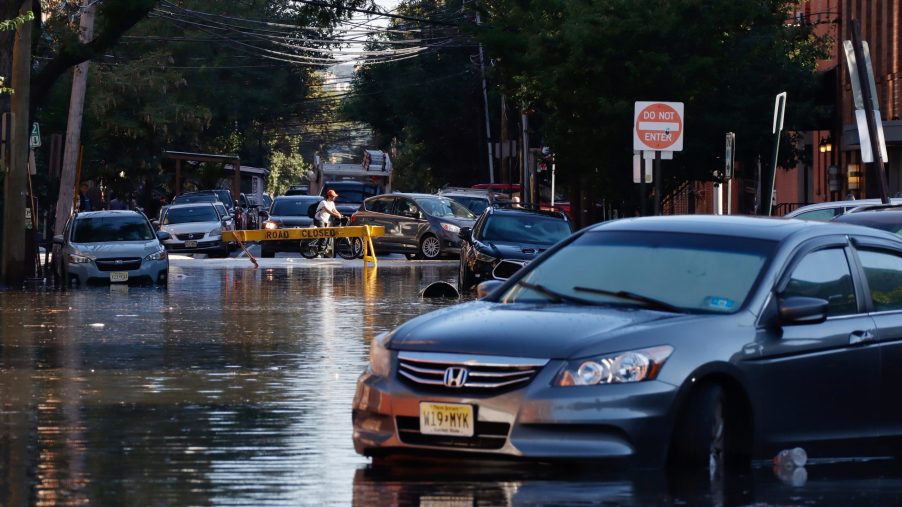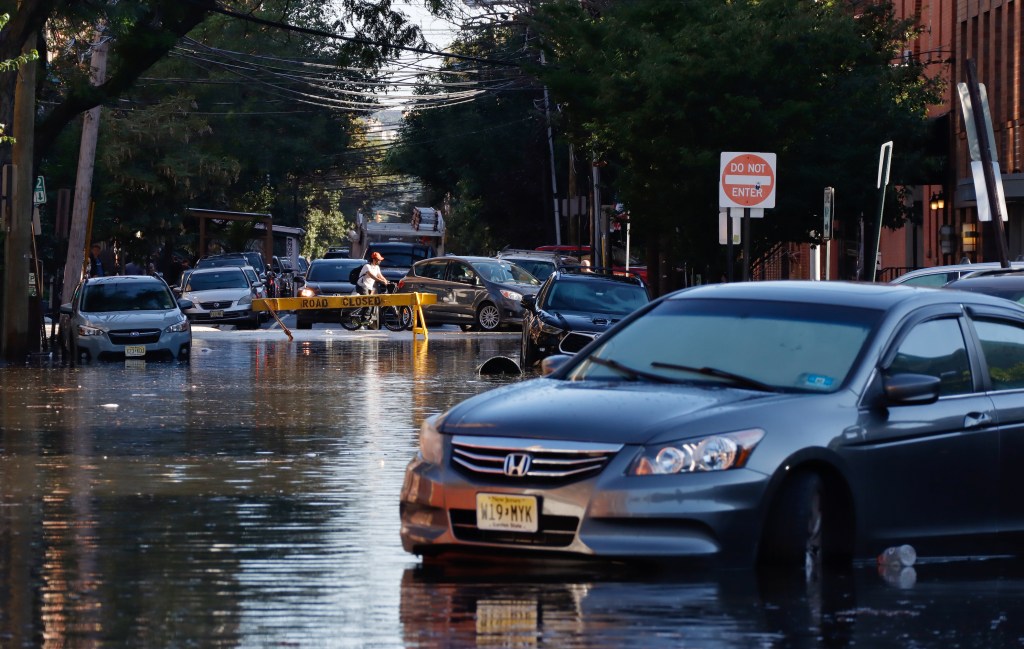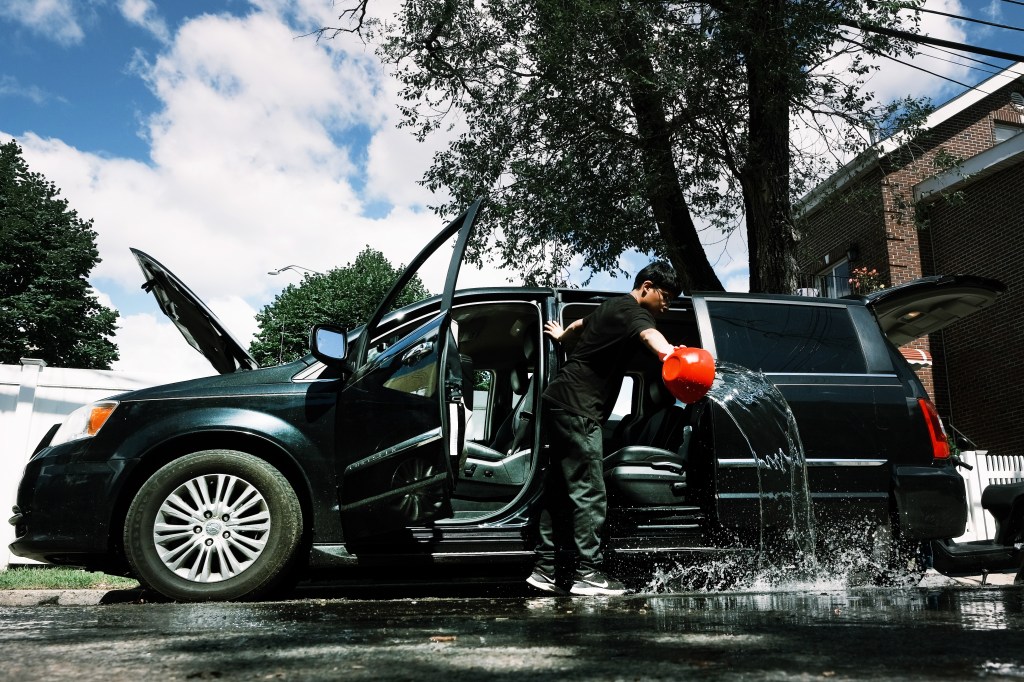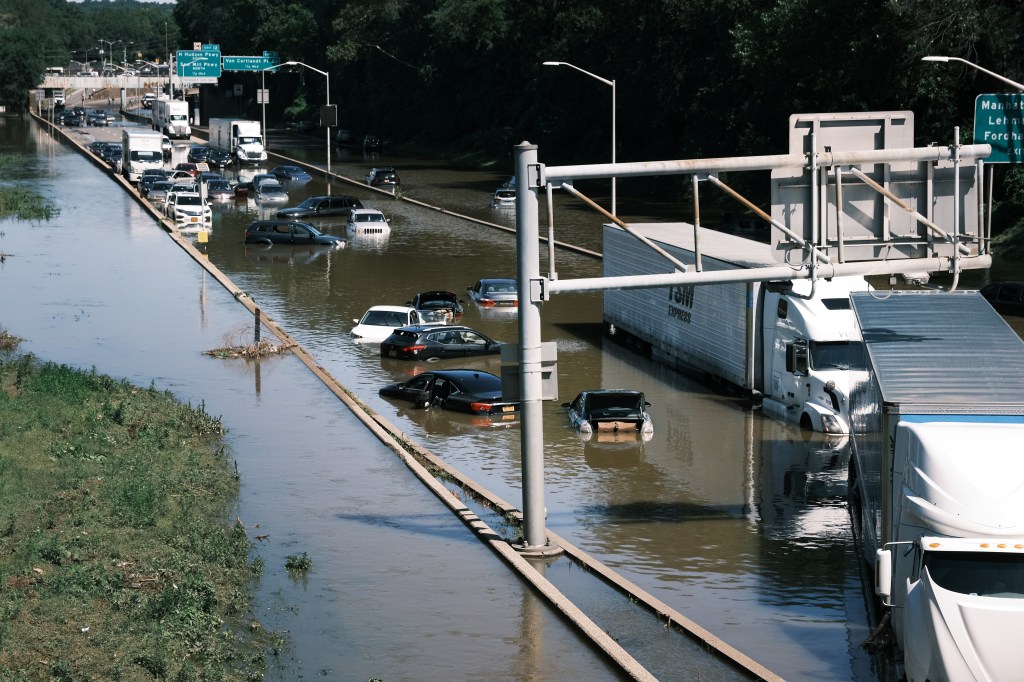
Flood-Damaged Cars Are Back on the Market: Here’s How to Avoid Buying One
Hurricane Ida wreaked havoc across the east coast, starting its destructive voyage in Louisiana on August 29th. However, the devastating storm may also affect anyone looking to buy a used car in the next few months. CNBC reported that flood-damaged cars are hitting used car lots and private sellers again. And while they might be fine now, you want to avoid buying one at all costs.

What is a flood-damaged car, and signs someone is selling one
You don’t have to be a mechanic to know that water in the engine is a bad thing. So water completely engulfing the engine would almost certainly destroy it. Flood-damaged vehicles are often totaled, as the cost to repair it is more than the value of the car. But that doesn’t mean they won’t run, they’ll just run rough and deteriorate over time.
The initial floodwaters can corrode wires and electronics, but even after the water evaporates, the damage continues to spread. Rust will form and wires will crack, and eventually, those damages will make their way to key components, such as the airbags. But the keyword is “eventually,” meaning if people can clean up the cars enough, they can sell them for a quick buck.
There’s no real way to know a vehicle was flooded until you see it, but there are ways to find red flags. For starters, look for the vehicle’s identification number, or VIN, and plug it into a VIN checker. This will pull up the vehicle’s history, any accidents and reports. The title itself may say salvage, as in the car was totaled, or rebuilt, meaning it was sold to someone and they put it back together. But chances are if someone is selling a flood-damaged car, they won’t report it.
When you go see the car in person, there will be clues that reveal if it was flood damaged. One of the most obvious would be damp, musty carpets. If the upholstery looks different in some spots, that can be another indicator. And if you look deeper and find brittle wiring, rust under the doors and dashboard, or moister in any of the lights (headlights, interior lights, and dashboard), you might be looking at a flood-damaged car.
Why would people want to sell flood-damaged cars?

But why would anyone want to sell a flood-damaged car you ask? All it does is give the new owner a piece of junk that’ll fall apart over time. The reasoning behind it is sad, to say the least, and a bit scummy.
As mentioned, sometimes people won’t report flood-damaged cars. This is because flood damage falls under a different comprehensive insurance that many people opt-out of. And if they don’t have the coverage, they’re SOL. The solution? Don’t ask don’t tell.
If the vehicle is totaled by floodwaters, and people don’t have the coverage, there’s no other way to make money than to quickly sell it. And this isn’t something that happens with private sellers only. Oftentimes, cheap used car dealerships will clean up flood-damaged cars in states where title laws are looser.
This is why thoroughly checking out a new car is crucial, otherwise, you might end up with a total lemon. In fact, there are many people on the road today who already have.
Unfortunately, this isn’t a new trend at all

With every hurricane comes flood-damaged cars. And according to CNBC’s findings, there were already 378,000 flood-damaged vehicles on the road before Ida made landfall. It’s just another automotive scam, and a lucrative one at that. After all, on the surface, you’re just selling a used car.
Post-Ida, thousands of vehicles were flooded, and history tends to repeat itself. A good chunk of the vehicles damaged are soon to be back on the market. So keep your eyes open for any signs you might be dealing with a flood-damaged car. And if the price seems too good to be true, walk away, and find something that won’t fall apart in the next 10,000 miles.


